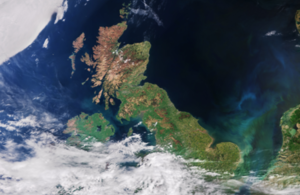
Credit: ESA
More than 30 representatives from the UK space industry, universities and government will visit GeoWorks, ST Engineering, the National University of Singapore and the Nanyang Technological University, before attending the Global Space and Technology Convention on 6-7 February.
The mission builds upon the close ties built through the UK-Singapore 'Partnership for the Future' launched last year, and aims to deepen understanding of the growing space landscape and develop long-lasting partnerships.
Dr Graham Turnock, Chief Executive of the UK Space Agency, said:
We have high ambitions to grow the UK space sector and must develop new, and strengthen existing, global partnerships to succeed. The UK Space Agency has already established strong relationships in the Asia-Pacific region through its International Partnership Programme, supporting sustainable development through space technology, and we continue to raise the priority of this fast growing and exciting region more widely.
We hope to continue this journey and strengthen our trade and technology partnerships, emulating the UK's historic relationships in other sectors such as science and finance.
The Science and Technology Facilities Council's RAL Space in the UK and the National University of Singapore's Centre for Quantum Technologies (CQT) have already established a programme to develop new quantum space technologies. They are working together to build a small satellite to test secure communications based on the exchange of cryptographic keys across the globe, known as Quantum Key Distribution.
The UK Space Agency's International Partnership Programme funds projects in the Asia-Pacific region to support sustainable development goals, from using satellite communications to respond effectively to natural disasters, to monitoring fishing activity using satellite positioning.
The UK space sector employs 42,000 people and generates an income of £14.8 billion each year, with the value of exports standing at £5.5 billion.
The UK continues to be a leading member of ESA, which is independent of the EU, having committed a record investment of £374 million per year in November 2019.






